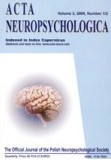Background: The King-Devick test (K-D) was introduced in 2011 as a quick, easy and cost-effective way to screen for a concussion. Relying on differences in visual scanning between a baseline and post-injury examination to discern a concussion, the test has been found to be sensitive to concussions immediately (within minutes) following injury. The aim of this paper was to determine whether the K-D is sensitive to residual effects of a concussion.
Material/Methods: Performance on the K-D was compared in a sample of 13 subjects tested 1-60 days after a concussion and 17 matched non-concussed controls. We also compared subjects’ performances on standard neuropsychological measures of convergent validity (attention, working memory and processing speed) and discriminant validity (IQ and motor speed).
Results: Consistent with hypotheses, concussed subjects performed worse on the K-D than non-concussed subjects. K-D performance was correlated with tests that measured attention and processing speed, but was unrelated to estimated IQ. There was a trend for subjects with a prior history of concussion to perform worse on the K-D than subjects for whom this was their first concussion.
Conclusions: These results provide initial support for convergent and criterion validity of the K-D as a measure of attention and processing speed that is sensitive to persisting effects of concussion.
Summary Points:
- Individuals with a recent history of concussion (1-60 days post-concussion) performed worse on the K-D Test than the non-concussed controls.
- K-D Test scores were correlated with other tests of attention and processing but not estimated IQ scores.
- This study demonstrated that K-D Test is sensitive to persisting effects of a concussion in the days and weeks following injury.

